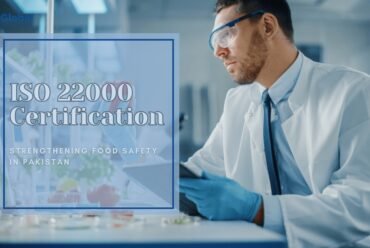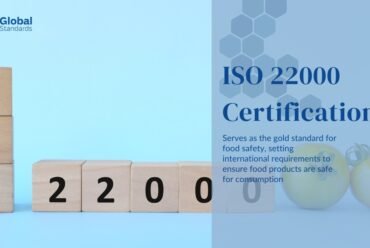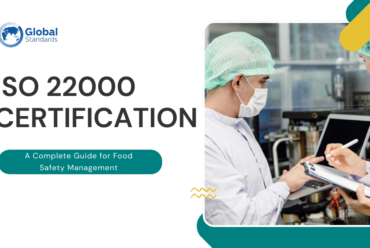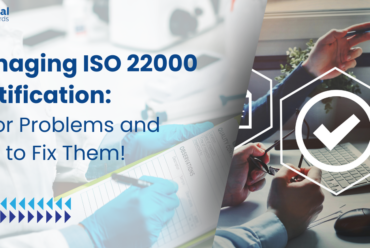Why ISO 22000 Certification is Key for Food Safety Management
A global standard known as ISO 22000:2018 Food Safety Management System guarantees the safety of food supply chains and offers a foundation for standards pertaining to international uniformity. To guarantee food safety, a Food Safety Management System (FSMS) employs a methodical methodology.
For audits carried out by Food Safety Auditors, ISO 22000 accreditation is dependent upon internationally established criteria for food safety. With the food sector growing over time, consumers anticipate better kitchen safety, hygiene, and food quality.
Food chains must have a thorough understanding of FSMS and how it impacts their operations. A food chain will not likely be able to retain its customers’ trust if it does not uphold food safety regulations. Conversely, a company that has earned ISO 22000 certification under the Food Safety Management System projects a favorable image, and customers have faith in it to uphold international standards for food safety.
Further investigation into the description of the Food Safety Management System reveals that it encompasses much more than just maintaining food hygiene. An FSMS should be used by all food businesses to manage Hazard Analysis Critical Control Points (HACCP).
Any firm in the food chain, from farm to fork, can implement this food safety management system; earning this accreditation enables a company to show their customers that they have a food safety management system in place. It provides customer confidence in the product. It specifies the requirements for a food safety management system that involves the following elements:
- Interactive Exchange of Information.
- System Administration.
- Program Requirements.
- HACCP Guidelines.
What Advantages Does ISO 22000 Certification Offer?
The items are safe and of the highest caliber because the FSMS’s production process is thought to adhere to appropriate food standards. Therefore, goods from these businesses have a higher chance of being embraced globally.
Using ISO 22000 Certification makes it simple to win over and maintain the trust of customers. Customers can make purchases with confidence thanks to this assurance.
The training programs provide in-depth information on potential food dangers, preventative measures, and underlying causes. In-depth conversations with microbiological safety specialists are beneficial for ensuring the quality of food.
The food industry needs this certification in order to function and expand. If the food sector does not adhere to this guideline, there are several regulations and can be penalized if any poor standards are reported. Since increasing food safety naturally ensures reliability in food quality management, the industry delivers genuinely hygienic Food.
- Boost Staff performance and overall productivity.
- Flesh out your company’s processes.
- Reduce waste and improve efficiency.
- Provide an improved customer experience.
Ending
Food Authorities are becoming increasingly strict and are proposing strict legislation to stop dangerous activities in the food processing business, as 70% of the most prevalent illnesses are foodborne. Restaurants that disregard Pakistan’s fundamental laws governing food safety and kitchen hygiene risk severe fines or even closure. Restaurants that suffer from damaged brand perception and financial losses consequently find themselves in a difficult scenario.
It has saved their lives. Owners of restaurants are increasingly aware that in order to solve any issue they have, they need to put in place appropriate FSMS systems. All of their issues are resolved with the appropriate international accreditation.
When a restaurant is properly implemented, there is no need to worry about food regulators coming to its door or developing anxieties among its patrons.








No Comments